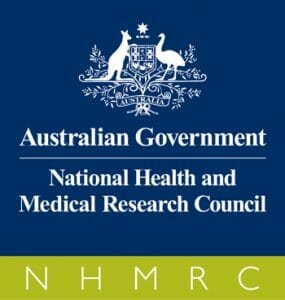
The UK Homeopathic Research Institute assisted the AHA in 2014 to write a response to the NHMRC on their draft report. [Source]
NHMRC Statement on Homeopathy
“Based on the assessment of the evidence of effectiveness of homeopathy, NHMRC concludes that there are no health conditions for which there is reliable evidence that homeopathy is effective.
Homeopathy should not be used to treat health conditions that are chronic, serious, or could become serious. People who choose homeopathy may put their health at risk if they reject or delay treatments for which there is good evidence for safety and effectiveness.
People who are considering whether to use homeopathy should first get advice from a registered health practitioner. Those who use homeopathy should tell their health practitioner and should keep taking any prescribed treatments.
The National Health and Medical Research Council expects that the Australian public will be offered treatments and therapies based on the best available evidence.”
Letter by AUSTRALIAN HOMOEOPATHIC ASSOCIATION INC.
Homœopathy is a holistic system of natural medicine which seeks to stimulate improved health and wellness in individuals. Homœopathy is one of the most used medical systems in the world, with an estimated one million Australians (1) choosing homœopathy as part of their health care.
In Europe over 30 Million people use homœopathic medicine, in India over 100 million people depend solely on homœopathic medicine.. Homœopathy also has a strong following in Russia, Mexico and South America, particularly in Brazil and Argentina.
The National Health and Medical Research Council (NHMRC) has today released a draft document detailing the results of a review of the efficacy of homœopathy. This review has focussed exclusively on recent systematic trials in a range of conditions and reports that there is insufficient evidence in the form of systematic reviews to prove homœopathy’s efficacy.
Homœopathy is a holistic system of medicine that focuses on the unique situation of each individual’s overall health. Homœopathy is not ideally suited to systematic reviews which focus on isolated disease conditions without considering the overall health of the individual. The Australian Homœopathic Association is disappointed that the NHMRC review focussed on only this one type of evidence and excluded other evidence types, which are more suited to the way homœopathy is used in clinical practice.
It should be noted here that the NHMRC working group did not include even one trained homœopath even though the AHA suggested a number of qualified individuals who not only are homœopathic practitioners but also have the relevant academic background. This lack would have reduced the NHMRC’s investigation to a merely numerical exercise based on the findings from not ideally suited research methodologies.
When the Swiss government conducted the most comprehensive government review of homœopathy undertaken (2), homœopathy was found to be both clinically effective and also very cost effective. When applied to other Western countries it was estimated a saving of hundreds of millions of dollars a year could be achieved through greater use of homœopathic treatment. The Swiss report also found that the existing systematic reviews indicated a general trend in favour of the effectiveness of homœopathy, supporting ongoing research development in this area.
A recent German study also concluded that patients who sought homœopathic treatment had better outcomes for similar cost. In France GPs using homœopathy had significantly better results in terms of clinical effectiveness, complications, parents’ quality of life and time lost from work, for lower cost to social security.
In the UK, where homœopathy remains available on the NHS(National Health Service), a 6 year study at the Bristol Homeopathic Hospital demonstrated 70% of patients experiencing an improvement in their health. Additionally, in France & Germany GP’s offer the choice of homœopathic medicine or pharmaceutical drugs.
The Australian Homœopathic Association recommend to the NHMRC that it take a more comprehensive approach to the analysis of homœopathy’s efficacy and consider a large-scale economic evaluation of the benefits of a more integrated system and one which respects and advocates “patient choice” in healthcare provision – as is common across Europe where over 30 Million people use homœopathic medicine.
In the late 90s the Lancet reported that just short of 5% of Australians had used homœopathy.
In 2007 the Journal of Alternative and Complementary Medicine found 6% had used homœopathy in the last 12 months, equally split between over-the-counter purchases and attending homœopathic consultations.

Its really sad that australian NHMRC has kept such non sense about homoeopathy…my sincere request is that please talk about things which you know.NHMRC dont know anything about homoeopathy
I boldly say “Shut up your mouth”, if you do not know the truth about Homeopathy. No science can survive hundreds of years, if not effective.